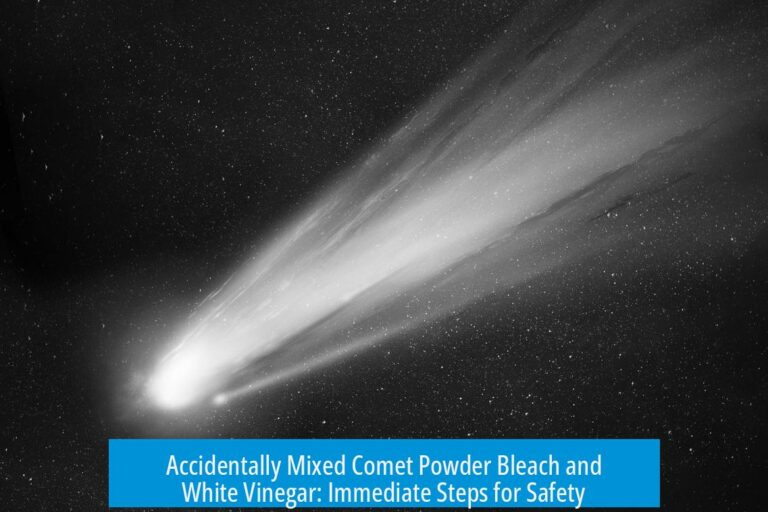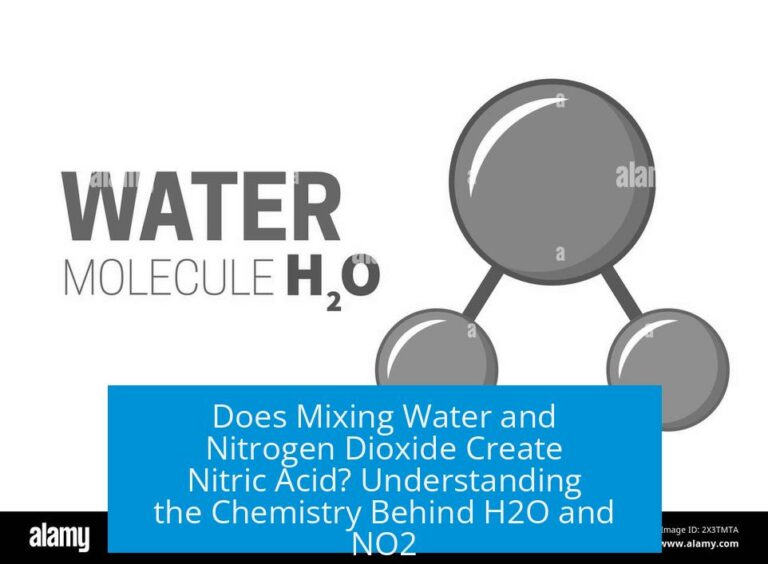What Kind of Mathematics Can a Chemistry Major Expect?

Chemistry majors can expect significant mathematical involvement in their studies, particularly in physical chemistry, analytical chemistry, and advanced inorganic chemistry. The math ranges from basic algebra and arithmetic to calculus, differential equations, linear algebra, and statistics. The extent depends largely on the subfield pursued.
Mathematics Intensity Across Chemistry Subfields

Mathematics requirements vary widely depending on the chemistry subfield.
- Physical Chemistry (P-Chem): This area is the most math-intensive. Students use calculus extensively, including multivariable calculus and differential equations. Linear algebra is also critical, especially in quantum chemistry. The subject often mirrors a math or physics course in rigor. A strong math foundation is essential for success in p-chem classes.
- Analytical and Quantitative Chemistry: Here, the math level focuses on algebra and statistics. Analytical chemistry courses involve quantitative problem solving, requiring solid skills in basic algebra and statistical methods, though some feel the statistics instruction is minimal.
- Organic Chemistry: Organic chemistry involves minimal mathematics. It mainly covers chemical structures and reaction mechanisms without heavy math requirements. Students typically rely on single-digit arithmetic and rarely use calculus or algebra.
- Inorganic Chemistry: Inorganic chemistry sometimes demands linear algebra, particularly when studying symmetry and quantum concepts. This math can enhance understanding of molecular structures and properties.
Prerequisite and Recommended Mathematics Courses

Most chemistry programs have specific math prerequisites and recommendations:
- Calculus I, II, and III: These are standard requirements for chemistry majors. Calculus forms the basis for physical chemistry and many quantitative analyses.
- Differential Equations: Often required or strongly recommended, particularly for thermodynamics and kinetics studied in physical chemistry.
- Linear Algebra: While not always mandatory, linear algebra is highly recommended. It is useful in quantum chemistry and inorganic chemistry, and enhances understanding of symmetry through group theory.
- Statistics: Basic statistics knowledge is needed, mainly for analytical chemistry. Some students suggest more dedicated statistics courses would be beneficial.
Mathematical Topics Commonly Encountered

| Math Topic | Context in Chemistry | Usage |
|---|---|---|
| Calculus (Integrals, Partial Derivatives) | Physical Chemistry, Thermodynamics, Kinetics | Essential for quantitative chemical analysis and modeling |
| Differential Equations | Reaction kinetics, thermodynamics | Describes rate laws and dynamic systems |
| Algebra and Logarithms | Analytical Chemistry, pH calculations | Fundamental for problem-solving and data interpretation |
| Statistics | Analytical Chemistry, Experimental Data Analysis | Used for error analysis and data reliability |
| Linear Algebra | Quantum Chemistry, Inorganic Chemistry, Group Theory | Important for understanding symmetry and molecular orbitals |
| Group Theory | Molecular Symmetry, Spectroscopy | Facilitates understanding of symmetry operations and molecular properties |
Attitudes and Practical Considerations

Students’ experiences with math in chemistry vary:
- Strong math skills correlate with success in courses like physical chemistry.
- Some chemistry majors find math intimidating and focus on subfields like organic chemistry or chemical biology with less math demand.
- Creative problem-solving and persistence often help overcome difficulties in mathematical topics.
- Advising is important; students unsure about math should consult advisors to align their career paths with their skills.
- Math minors enhance understanding but may add workload; a math major is most beneficial for physically intensive chemistry fields.
Summary: Typical Math Coursework for Chemistry Majors

| Mathematics Topic | Chemistry Course Context | Requirement Level |
|---|---|---|
| Calculus I-III | General Chemistry prerequisite, Physical Chemistry | Required |
| Differential Equations | Thermodynamics, Reaction Kinetics | Often required or recommended |
| Linear Algebra | Quantum Chemistry, Inorganic Chemistry | Recommended or elective |
| Statistics | Analytical Chemistry | Covered but may need additional study |
| Basic Algebra and Arithmetic | Analytical and Quantitative Chemistry | Fundamental; essential at all levels |
| Group Theory | Quantum and Inorganic Chemistry Symmetry | Helpful but not always formally taught |
Key Takeaways
- Chemistry majors encounter diverse math topics from algebra to advanced calculus and linear algebra.
- Physical chemistry demands the greatest mathematical rigor, while organic chemistry involves minimal math.
- Calculus and differential equations are core requirements in most chemistry curricula.
- Statistics and linear algebra support understanding analytical and quantum chemistry.
- Strong math skills improve success; students should seek guidance to choose appropriate coursework.
What Kind of Mathematics Can a Chemistry Major Expect?
For a chemistry major, math is not just a side dish—it’s often a main course, especially in certain subfields. The kind of math you’ll face depends heavily on your area of focus, but generally, expect to tackle calculus, differential equations, algebra, statistics, and sometimes linear algebra and group theory. So, if you’re picturing chemistry as just mixing potions and memorizing molecules, buckle up. There’s some serious math under the hood.
Now, how much math you will encounter will make you either cheer with joy or clutch your calculator in despair. And yes, both reactions are totally valid.
Getting Real: Mathematics in Chemistry Subfields
If you dive into Physical Chemistry (P-Chem), prepare for a close dance with math. Many students call P-Chem the “most intense math-wise” chemistry course around. Calculus, differential equations, and sometimes real advanced calculus show up here like uninvited party guests. Depending on your instructor’s style, you might find yourself solving integrals or tackling partial derivatives and differential equations related to thermodynamics.
Physical chemistry borders on being a math class masquerading as chemistry. Think of it as chemistry’s geeky sibling who loves numbers. P-Chem also leans heavily on concepts from linear algebra, especially as you explore quantum chemistry or inorganic areas. Some veterans wish their curriculum had included a linear algebra class and a separate, dedicated stats course to prepare better for P-Chem’s demands.
Moving over to Analytical and Quantitative Chemistry, math is still a big player—though the style changes. Here, basic algebra and statistics rule the scene. You’re dealing with data analysis, measurements, and uncertainty. So expect to engage with statistical tools like standard deviations, confidence intervals, and maybe even some regression analysis. However, some suggest the stats coverage in these courses barely scratches the surface, hinting at a need for a more in-depth study.
Now, if you’re eyeing Organic Chemistry (O-Chem), breathe easier. This subfield is famously low on math drama. You’ll be juggling more molecular structures, reaction mechanisms, and yes, a wild party with solvents in the lab. The math—if you can even call it that—is mostly just single-digit numbers and basic calculations. You won’t need complex calculus or stats, making it a haven for students who prefer less number crunching and more molecular puzzles.
In the world of Inorganic Chemistry, math makes a subtle but important appearance. Like P-Chem, areas such as quantum inorganic chemistry lean on linear algebra and sometimes group theory—which is the math behind symmetry and molecular shapes. If you peek into these topics, a grasp of these mathematical tools will make your life much easier.
Math Coursework: What’s Typically Required?
Most chemistry majors enter their program with a foundation in Calculus I, II, and III. Calculus here is not optional; it’s a prerequisite. Calculus II and III often cover integrals, partial derivatives, and multiple variables—key concepts when dealing with reaction rates or thermodynamic processes.
Beyond calculus, you’ll often face a differential equations course—critical for modeling chemical kinetics, diffusion processes, and quantum states. Without it, explaining how molecules evolve over time can get pretty murky.
While linear algebra and statistics might not be formal requirements everywhere, many seasoned chem majors recommend them. Why? Linear algebra helps decipher quantum mechanics and the symmetry of molecules through group theory—the mathematics behind why molecules behave the way they do. Statistics is indispensable for analytical chemistry, extracting meaningful conclusions from experimental data.
| Math Topic | Chemistry Context | Requirement |
|---|---|---|
| Calculus I-III | General Chemistry Prerequisites, Physical Chemistry | Required |
| Differential Equations | Thermodynamics, Advanced Courses | Often Required |
| Linear Algebra | Quantum Physical Chemistry, Inorganic Chemistry | Recommended / Sometimes Required |
| Statistics | Analytical Chemistry | Covered but Often Insufficient |
| Basic Algebra & Arithmetic | Analytical and Quantitative Chemistry | Fundamental |
| Group Theory | Symmetry in Quantum / Inorganic Chemistry | Helpful |
Diving into the Details: Skills You’ll Build
Here are the essential math concepts chemistry majors will meet along the way:
- Calculus: Integrals, partial derivatives, derivative rules—to analyze rates and changes in chemical processes.
- Differential Equations: Modeling how concentrations change over time during reactions or physical processes.
- Algebra and Logarithms: Simple but critical, for pH calculations, reaction equilibria, and quantitative analysis.
- Statistics: For interpreting measurement error, instrument calibration, and data confidence.
- Linear Algebra: Organizing complex quantum states and molecular orbital calculations.
- Group Theory: Providing a conceptual handle on molecular symmetry, often considered a mathematical poetry of molecules.
Practical and Attitudinal Tips: Embracing the Math in Chemistry
Many chemistry students admit they “hate” math. It’s like the broccoli on your dinner plate that you know is good for you, but you’d rather have dessert.
If you’re the creative type who likes problem solving, math and chemistry can be a fun combo. Calculating reaction rates and interpreting spectra can feel like wielding a superpower. If math intimidates you, though, some subfields—like chemical biology or organic chemistry—need less math and might be the sweet spot.
For some, a math minor complements chemistry nicely, adding rigor and deeper insight. But be warned: some math courses can feel dry if you’re a chemist who’s more into labs than proofs.
Before you panic about your math skills, keep this in mind: many students struggle early on but find calculus II and beyond quite manageable and even enjoyable. Don’t let a shaky pre-calc grade define your path.
If you find the math overwhelming but are passionate about chemistry, discuss alternatives with your advisor. Programs like biochemistry or medicinal chemistry tend to have lighter math loads while still giving you a rich chemistry education.
Story Time: A Personal Perspective
Imagine a student named Alex, who dreaded math through high school but loved chemistry lab work. Early college days made Alex nervous about the upcoming calculus classes. However, once Alex entered calculus II and started P-Chem, something clicked. The math started to reveal why molecules behaved as they did. Understanding differential equations clarified reaction kinetics, and linear algebra made sense when studying quantum orbitals. Math transformed from an obstacle into a key to unlock chemistry’s secrets.
Of course, it wasn’t easy. Tough nights spent with integrals and partial derivatives were part of the journey. But the payoff? A deeper appreciation for the beauty and order behind chemical reactions. If Alex had skipped math, the worldview would have been incomplete.
Final Thoughts: The Math-Chemistry Connection
What kind of mathematics can a chemistry major expect? To sum it all up:
“Expect a spectrum—from simple algebra and basic statistics in analytical chemistry to intensive calculus, differential equations, and linear algebra in physical and inorganic chemistry. Your math experience depends largely on your chosen subfield and how deep into theory you want to dive.”
Don’t oversimplify chemistry by ignoring math. Mastering math topics like calculus, differential equations, and linear algebra can transform your approach to chemistry from memorization to understanding. Yet, there is room to maneuver—organic chem majors tend to get by with minimal math. So, the real question: how much math do YOU want to embrace on your chemical journey?
In the end, equip yourself with the math necessary for your goals. Considering all the facts, it’s clear that math is the hidden language of chemistry. And like any language, the more you learn, the more fluent and confident you become in your field.
Feeling overwhelmed? Ask your advisor, seek tutoring, and remember many others have succeeded before you—math is challenging but conquerable. And who knows? You might even find it fun.
What level of calculus should a chemistry major expect to study?
Chemistry majors typically need to complete Calculus I, II, and III. Physical chemistry courses often use advanced calculus, including integrals and partial derivatives.
Is linear algebra important for chemistry students?
Yes, linear algebra is very useful, especially in physical and inorganic chemistry. It helps with quantum chemistry and understanding symmetry through group theory.
How much math is involved in organic chemistry?
Organic chemistry usually requires minimal math. Most students use very basic arithmetic and do not encounter complex mathematical concepts in this field.
What type of math is used in analytical and quantitative chemistry?
Analytical chemistry involves basic algebra and statistical methods. Students often need to understand data analysis, but deep calculus is less common.
Are differential equations necessary for a chemistry major?
Differential equations are important, especially for physical chemistry and thermodynamics. They appear in later coursework and help explain dynamic chemical processes.
Why might group theory be useful for chemistry students?
Group theory helps explain molecular symmetry and underlying chemical laws. It makes advanced topics like quantum chemistry more understandable when combined with linear algebra.





Leave a Comment